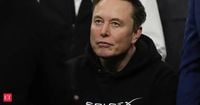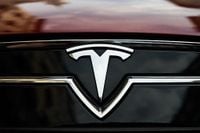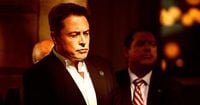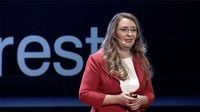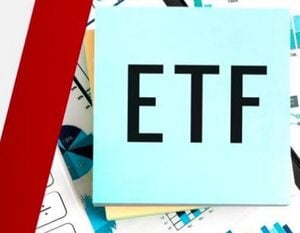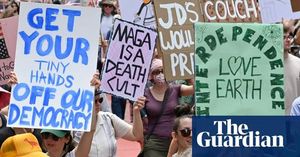In a dramatic turn of events, former Tesla engineer Christina Balan has secured the right to sue the electric vehicle maker in court, a significant victory after years of legal battles. Balan's story, which is both compelling and alarming, centers around her attempts to raise safety concerns regarding the Model S, specifically about the potential hazards posed by the vehicle's floor mats.
Back in 2014, Balan, who was deeply involved in the engineering of the Model S—so much so that her initials are inscribed on its battery pack—sent an email to CEO Elon Musk highlighting her worries that the floor mats could interfere with the brake pedal, leading to a serious safety risk. This was in line with Musk's earlier directive encouraging employees to speak up about issues that could benefit the company. However, instead of addressing her concerns, Balan alleges that she was met with intimidation tactics.
Just days after her email, she was summoned to a meeting that she believed would involve a discussion with Musk. Instead, she found herself confronted by Tesla's legal team and security personnel. During this meeting, Balan claims that she was coerced into resigning under threat of deportation against her colleagues, many of whom were awaiting green card applications. "They forced me to resign. They told me that if I'm not resigning on the spot, they will deport my entire team, because the entire Tesla team was backing me up," she stated in an interview.
Balan's resignation letter poignantly expressed her outrage, noting, "I'm resigning for the position that I was put in a month ago because I dared to speak up to the senior management, also because people that had the chance to speak up were threatened." This incident is emblematic of a broader culture within Tesla, where employees have reportedly faced retaliation for voicing concerns about safety and working conditions.
In the aftermath of her resignation, Balan's struggles intensified. Tesla publicly accused her of engaging in a "secret project" that allegedly misused company resources, a claim she has vehemently denied. In 2019, she filed a defamation lawsuit against the company, but a lower court ruled that her case must go to arbitration, a decision that was recently overturned by the Ninth Circuit Court of Appeals.
This ruling allows Balan to proceed with her defamation suit in court, which she hopes will shed light on Tesla's practices and hold Musk accountable. "This is why I started this lawsuit, to prove my innocence and to prove how vindictive this monster is. He’s pure evil... he’s enjoying hurting people," Balan stated emphatically.
Experts have noted that Balan's case is not isolated. Many former Tesla employees have reported similar experiences of intimidation and retaliation. Stanford professor Anat Admati remarked, "Tesla is among the many corporations that force employees and customers into opaque arbitration processes and deploy aggressive strategies to retaliate against employees who voice criticism of corporate practices." This pattern of behavior raises serious concerns about employee rights and safety within the company.
In the years since her departure from Tesla, Balan has fought a long and arduous legal battle, which has been complicated by her health struggles. She is currently in remission from stage 3 breast cancer. Her legal team, led by attorney Bill Moran, is optimistic about the new developments in her case. Moran has stated, "We are confident we can secure her either a new arbitration or alternatively a trial in court so that her case can be heard on the merits after so many years."
The implications of Balan's case extend beyond her personal struggles. If her allegations are proven true, they could put Tesla's reputation at risk, especially given the company's reliance on skilled immigrant labor through the H-1B visa program. Musk himself has faced scrutiny over his own immigration history, which adds another layer of complexity to this unfolding story.
Balan's determination to expose the truth about her experiences reflects a growing trend among whistleblowers in the tech industry who are increasingly willing to challenge powerful corporations. As she prepares for her day in court, Balan remains resolute in her mission to seek justice not only for herself but for all those who have faced similar retaliation.
In light of these developments, many are watching closely to see how Tesla will respond to the renewed legal challenges. The outcome of Balan's case could have significant ramifications for corporate accountability and employee rights in the tech sector. As Balan herself put it, "I want to clear my name. I wish Elon Musk had the decency to apologize." Her fight is far from over, and the coming months will be crucial in determining the future of her case and the broader implications for whistleblower protections.
